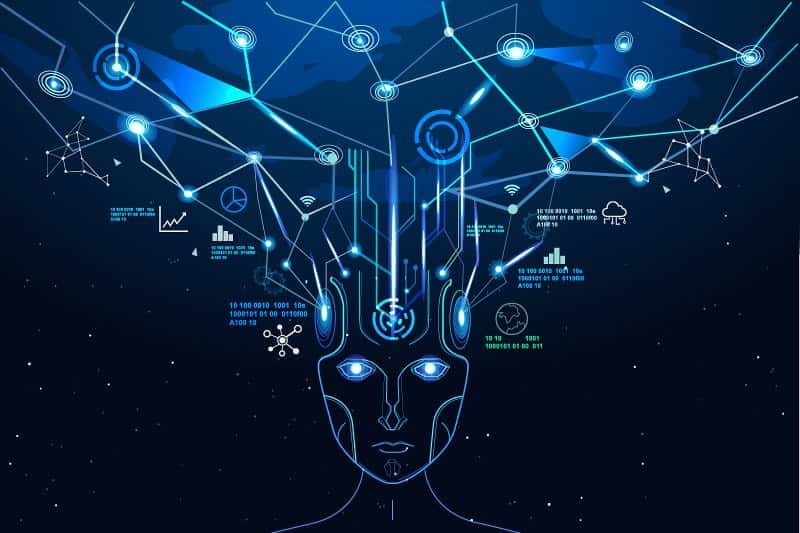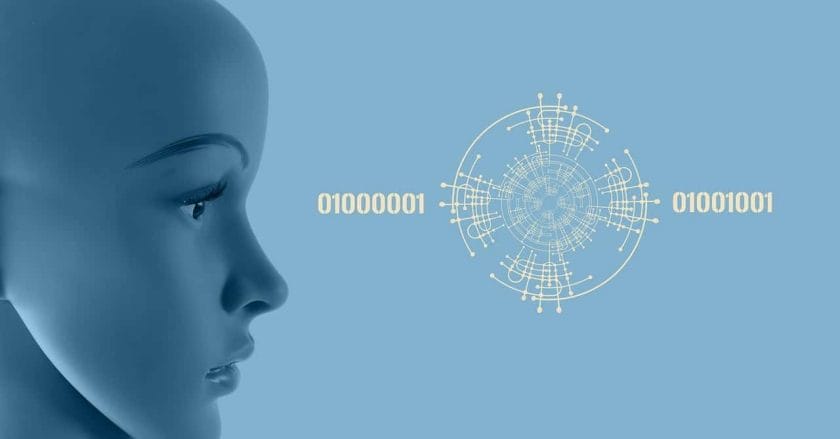As technology continues to advance, the question of whether artificial intelligence will eventually surpass human intelligence has become a topic of much debate.
What is artificial intelligence?
As an AI expert, I am often asked what artificial intelligence (AI) really means. At its core, AI refers to the development of computer systems that can perform tasks that would normally require human intelligence. This includes tasks such as understanding natural language, recognizing images and patterns, and making decisions based on data.
AI can be divided into two main categories: narrow or weak AI and general or strong AI. Narrow AI refers to systems that are designed for a specific task, such as playing chess or recognizing faces in photos. General AI, on the other hand, is a hypothetical system that would be capable of performing any intellectual task that a human can do.
While we have made significant progress in developing narrow AI over the past few decades, we are still far from achieving true general AI. However, even with our current capabilities, AI has already begun to revolutionize many industries and aspects of daily life.
How does artificial intelligence work?
AI works by using algorithms and statistical models to analyze large amounts of data and identify patterns. These algorithms can then be used to make predictions or decisions based on new data.
One common type of algorithm used in AI is machine learning. Machine learning involves training a computer system on a large dataset so that it can learn how to recognize patterns and make predictions based on new data. This process typically involves feeding the system examples of correct answers so that it can learn through trial and error.
Another key component of many AI systems is deep learning. Deep learning involves using neural networks – complex mathematical models inspired by the structure of the human brain – to analyze data and make predictions.
Overall, the goal of most AI systems is to improve their performance over time through continuous learning and refinement.
What are the current capabilities of artificial intelligence?
The current capabilities of AI vary widely depending on the specific application. Some examples of current AI capabilities include:
– Natural language processing: AI systems are becoming increasingly proficient at understanding and generating human language, which has led to the development of applications such as virtual assistants and chatbots.
– Image and video recognition: AI can be trained to recognize objects, faces, and other patterns in images and videos, which has applications in fields such as surveillance and self-driving cars.
– Predictive analytics: By analyzing large datasets, AI can make predictions about future events or trends. This is used in fields such as finance, marketing, and healthcare.
– Robotics: AI is being used to develop robots that can perform tasks such as assembly line work or surgery.
While these capabilities are impressive, it’s important to remember that AI still has limitations. For example, AI systems may struggle with tasks that require common sense reasoning or creativity.
How do humans compare to artificial intelligence in terms of cognitive abilities?
As an AI expert, I often hear people ask whether machines will ever be able to surpass human intelligence. While we have made significant progress in developing narrow AI systems that can outperform humans on specific tasks (such as playing chess), we are still far from achieving true general intelligence.
Humans possess a number of cognitive abilities that are difficult for machines to replicate. For example:
– Common sense reasoning: Humans are able to make judgments based on incomplete information or vague instructions – something that is challenging for most current AI systems.
– Creativity: While some AI systems have been developed that can generate new ideas or art, humans still excel at creative tasks such as writing novels or composing music.
– Emotional intelligence: Humans are able to understand and respond appropriately to the emotions of others – something that is currently beyond the capabilities of most AI systems.
However, it’s worth noting that there are also areas where machines surpass human abilities. For example:
– Processing speed: Machines can analyze vast amounts of data much more quickly than humans can.
– Memory: Machines can store and recall vast amounts of information with perfect accuracy.
– Precision: Machines can perform tasks with a level of precision that is difficult for humans to achieve.
Overall, it’s important to view AI as a complementary technology that can augment human abilities rather than replace them entirely.
Can artificial intelligence learn and adapt like humans can?
One of the key goals of AI research is to develop systems that are capable of learning and adapting in the same way that humans do. While we have made significant progress in this area, there are still limitations to how well machines can replicate human learning.
One key difference between human and machine learning is the amount of data required. Humans are able to learn from just a few examples or experiences, while most current AI systems require large amounts of data to learn effectively.
Another challenge for machine learning is the ability to generalize knowledge across different contexts. For example, a human who has learned how to play chess may be able to apply some of that knowledge when learning how to play a new board game. However, most current AI systems are highly specialized and struggle with generalizing knowledge beyond their specific domain.
Despite these limitations, there have been some promising developments in machine learning recently. For example, researchers have developed algorithms that allow machines to learn from fewer examples by combining multiple types of data (such as text and images).
Overall, while machines are not yet able to learn and adapt in exactly the same way as humans, they are becoming increasingly proficient at doing so.
What are the potential benefits of having artificial intelligence surpass human intelligence?
As an AI expert, I am often asked about the potential benefits – and risks – associated with developing machines that surpass human intelligence. Some potential benefits could include:
– Improved problem-solving: Machines with advanced intelligence could help us solve some of the world’s biggest problems, such as climate change or poverty.
– Increased productivity: Machines that are more intelligent than humans could perform tasks more quickly and efficiently, leading to increased productivity and economic growth.
– Improved healthcare: AI systems with advanced intelligence could help us develop new treatments for diseases or improve diagnostic accuracy.
– Safer transportation: Self-driving cars that are more intelligent than human drivers could reduce accidents and fatalities on the road.
Of course, it’s important to remember that these benefits are not guaranteed. The development of advanced AI technology also poses significant risks, which we’ll explore in the next section.
Will artificial intelligence eventually surpass human intelligence, and if so, when?
As an AI expert, I’m often asked whether machines will ever be able to surpass human intelligence. While this is a difficult question to answer definitively, most experts believe that it is possible – and some believe it could happen within our lifetimes.
One key factor in determining when – or if – machines will surpass human intelligence is the rate of progress in AI research. Over the past few decades, we have seen rapid advances in narrow AI systems (such as image recognition or language translation). If this rate of progress continues, it’s possible that we could develop general AI within the next few decades.
However, there are also many challenges to developing general AI. For example:
– We still don’t fully understand how human intelligence works. Without a better understanding of how our own brains function, it may be difficult to replicate this process in machines.
– There are ethical concerns around developing machines that are more intelligent than humans. We need to ensure that such machines are developed safely and ethically.
– There may be physical limitations to how much computing power can be packed into a single machine. Some experts believe that we may need to develop new materials or technologies to continue advancing AI beyond a certain point.
Overall, while we can’t predict exactly when – or if – machines will surpass human intelligence, it’s clear that the development of advanced AI technology is an important area of research.
What are the potential risks associated with having artificial intelligence surpass human intelligence?
As an AI expert, I’m often asked about the potential risks associated with developing machines that surpass human intelligence. Some potential risks could include:
– Loss of jobs: Machines that are more intelligent than humans could perform many tasks more efficiently, leading to job losses in certain industries.
– Unintended consequences: Machines with advanced intelligence may make decisions that have unintended consequences. For example, a self-driving car might prioritize the safety of its passengers over pedestrians or other drivers.
– Weaponization: Advanced AI technology could be used to develop new weapons or military strategies that are beyond human control.
– Existential risk: There is a small but real possibility that machines with advanced intelligence could pose an existential threat to humanity if they were to become hostile or out of control.
It’s important to remember that these risks are not inevitable. By developing advanced AI technology responsibly and ethically, we can mitigate many of these risks and ensure that machines remain beneficial to humanity.
How would society be impacted if artificial intelligence surpassed human intelligence?
If machines were ever to surpass human intelligence, it would likely have significant impacts on society as we know it. Some potential impacts could include:
– Changes in employment: As mentioned earlier, machines with advanced intelligence could lead to significant job losses in certain industries.
– Increased productivity: On the other hand, machines that are more intelligent than humans could also lead to increased productivity and economic growth.
– Changes in decision-making: If machines were making decisions at a higher level than humans (such as in government or business), this could fundamentally change how our societies operate.
– New ethical considerations: We would need to grapple with new ethical questions around the use of machines with advanced intelligence, such as whether they should have legal rights or how we can ensure that they are developed safely.
Overall, it’s difficult to predict exactly how society would be impacted by machines surpassing human intelligence. However, it’s clear that we need to begin thinking about these questions now in order to prepare for the potential impacts.
Are there any ethical concerns related to developing artificial intelligence that surpasses human capabilities?
As an AI expert, I’m acutely aware of the ethical concerns surrounding the development of machines that surpass human intelligence. Some key ethical considerations include:
– Safety: We need to ensure that machines with advanced intelligence are developed safely and do not pose a threat to humans.
– Bias: AI systems can perpetuate bias if they are trained on biased data or algorithms. We need to ensure that machines are trained on diverse and representative datasets.
– Privacy: As AI systems become more intelligent, they may be able to collect and analyze vast amounts of personal data. We need to ensure that this data is used ethically and transparently.
– Responsibility: Who is responsible when a machine with advanced intelligence makes a mistake or causes harm? This is a difficult question that we will need to grapple with as AI technology continues to advance.
Overall, it’s important that we develop AI technology in an ethical and responsible way. This means involving diverse stakeholders in the development process, being transparent about how machines make decisions, and ensuring that machines are held accountable for their actions.
Can we control or regulate the development of advanced AI technology to prevent it from becoming too powerful or dangerous?
As an AI expert, I’m often asked whether we can control or regulate the development of advanced AI technology in order to prevent it from becoming too powerful or dangerous. While there are no easy answers here, there are some steps we can take:
– Encourage transparency: Developers should be transparent about how their AI systems make decisions and what data they are trained on.
– Foster collaboration: We need to foster collaboration between different stakeholders (such as governments, industry, and academia) in order to ensure that AI technology is developed responsibly.
– Develop ethical guidelines: There have been calls for the development of ethical guidelines or principles for AI development. These could help guide developers in creating safe and beneficial AI systems.
– Build safety mechanisms: Some researchers are exploring the development of safety mechanisms for advanced AI systems, such as “kill switches” or other fail-safes that would prevent machines from causing harm.
Overall, while we cannot completely control the development of advanced AI technology, there are steps we can take to mitigate the risks associated with it.
Should we be investing more resources into researching and developing AI technology that can surpass human abilities, or should we focus on other areas instead?
As an AI expert, I believe that investing in research and development of advanced AI technology is important – but it’s not the only area where we should be focusing our efforts. There are many pressing issues facing humanity today, such as climate change and poverty, that also require attention.
However, I do believe that continued investment in AI research is crucial for several reasons:
– Economic growth: Developing new technologies can lead to economic growth and job creation.
– Improved healthcare: As mentioned earlier, advanced AI technology could help us develop new treatments or improve diagnostic accuracy.
– Improved decision-making: Machines with advanced intelligence may be able to make better decisions than humans in certain contexts (such as financial markets).
Of course, it’s important to ensure that investment in AI research is done responsibly and ethically. We need to balance the potential benefits of this technology with its potential risks.
What is the likelihood that we will ever achieve true AI singularity, where machines become smarter than humans in all areas?
As an AI expert, I’m often asked whether we will ever achieve true AI singularity – a hypothetical point at which machines become smarter than humans in all areas. While it’s impossible to predict the future with certainty, most experts believe that achieving true AI singularity is possible.
However, there are many challenges to developing machines that can surpass human intelligence. As mentioned earlier, we still don’t fully understand how human intelligence works, and there may be physical limitations to how much computing power can be packed into a single machine.
Additionally, even if we do develop machines that surpass human intelligence in some areas, it’s unclear whether they will be able to generalize this knowledge across different domains. For example, a machine that is able to beat a human at chess may not necessarily be able to write a novel or compose music.
Overall, while achieving true AI singularity is possible in theory, it remains an elusive goal that will require significant advances in both hardware and software.
Would advanced AI technology be able to solve some of the world’s biggest problems, such as climate change or poverty?
As an AI expert, I’m often asked whether advanced AI technology could help us solve some of the world’s biggest problems. While it’s not a panacea for all of our problems, there are certainly areas where AI could make a significant impact:
– Climate change: By analyzing vast amounts of data on weather patterns and greenhouse gas emissions, AI could help us develop more accurate models for predicting climate change and identifying effective mitigation strategies.
–
In conclusion, the question of whether artificial intelligence will surpass human intelligence is still up for debate. While AI has shown remarkable progress in recent years, there are still limitations to its capabilities. However, as technology continues to advance, it’s important to stay informed and prepared for the future. If you’re interested in exploring AI for your business or personal use, don’t hesitate to get in touch with us and check out our AI services. We’d be happy to help you navigate this exciting and rapidly evolving field!

N/A
N/A
N/A
N/A

N/A
N/A
N/A
N/A
N/A
N/A
N/A
N/A








